Introduction Heart palpitations can be a disconcerting experience, causing your heart to race, flutter, or skip a beat. While these sensations can occur at any time, some individuals notice them after eating. In this comprehensive guide, we will delve into the world of post-meal heart palpitations, uncovering the various causes, effective treatments, and essential prevention
Introduction
Heart palpitations can be a disconcerting experience, causing your heart to race, flutter, or skip a beat. While these sensations can occur at any time, some individuals notice them after eating. In this comprehensive guide, we will delve into the world of post-meal heart palpitations, uncovering the various causes, effective treatments, and essential prevention strategies. Dr. Millie Lee, a distinguished medical doctor, lends her expertise to help you understand and manage this common issue effectively.

Image by: https://www.millieleemd.com/
Understanding Heart Palpitations
Before we explore the causes and remedies for heart palpitations after eating, let’s first establish what heart palpitations are. Palpitations are characterized by irregular, rapid, or unusually strong heartbeats. While they can be unsettling, it is crucial to understand that they do not always indicate a severe heart condition. Nevertheless, it is essential to take them seriously, especially when they become recurrent or are accompanied by other concerning symptoms.
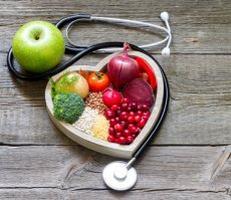
Image by: https://www.premiercardiology.com/services/heart-palpitations
Common Causes of Heart Palpitations After Eating
1. Alcohol
One common trigger for post-meal heart palpitations is alcohol consumption. Excessive or habitual drinking, even at moderate levels, can elevate the risk of atrial fibrillation, a severe arrhythmia often associated with palpitations. It’s worth noting that while light alcohol consumption may have potential heart benefits, these do not extend to individuals with arrhythmias.
- Excessive or habitual drinking, even at moderate levels, can elevate the risk of atrial fibrillation.
- Light alcohol consumption may have potential heart benefits but does not extend to individuals with arrhythmias.

Image by: https://azharimd.com/medical-and-health-news/alcohol-may-have-immediate-effect-on-atrial-fibrillation-risk/
2. Caffeine
Caffeine is another frequent culprit behind post-meal palpitations. Caffeine is present in various beverages, including coffee, tea, sodas, energy drinks, and some medications. While research suggests that moderate caffeine consumption (up to 300 mg per day) is generally safe for most people, individuals vary in their sensitivity to caffeine. Energy drinks, in particular, can contain excessive amounts of caffeine and have been linked to arrhythmias.
- Caffeine is present in various beverages, including coffee, tea, sodas, energy drinks, and some medications.
- Energy drinks, in particular, can contain excessive amounts of caffeine and have been linked to arrhythmias.
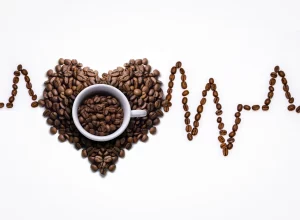
Image by: https://reizeclub.com/caffeine-tolerance/
3. High Sodium Foods
Foods high in sodium, such as chips, canned soups, pizza, processed meats, and cheese, can be detrimental to individuals with heart rhythm conditions. High salt intake has been associated with an increased risk of arrhythmias. Reducing sodium in your diet can help mitigate this risk.
- High salt intake has been associated with an increased risk of arrhythmias.
- Reducing sodium in your diet can help mitigate this risk.

Image by: https://www.mountelizabeth.com.sg/health-plus/article/salt-and-your-health
4. Overall Diet
Your overall dietary habits can also influence the likelihood of post-meal heart palpitations. Diets high in saturated fats may contribute to arrhythmias. Conversely, diets low in carbohydrates may increase the risk of arrhythmias as well. Adequate intake of potassium, found in fresh fruits and vegetables, is crucial for heart health.
- Diets high in saturated fats or low in carbohydrates may contribute to arrhythmias.
- Adequate intake of potassium, found in fresh fruits and vegetables, is crucial for heart health.

Image by: https://www.bbcgoodfood.com/howto/guide/balanced-diet-women
5. Medications
Certain medications, both prescription and over-the-counter, can trigger or exacerbate arrhythmias, leading to palpitations. These medications include antidepressants, anti-inflammatory drugs, bronchodilators, and cold medications. If you suspect that a medication is causing your palpitations, discuss it with your healthcare provider.
- Medications include antidepressants, anti-inflammatory drugs, bronchodilators, and cold medications.
- Discuss any medication-related concerns with your healthcare provider.
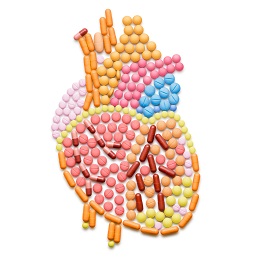
Image by: https://www.chihealth.com/en/about-us/press-room/publications/better-you/heart/medications-your-heart-needs.html
6. Supplements
Some herbal dietary supplements have been known to adversely affect the heart and blood vessels, as reported in an older 2010 review. The effects may result from the herbs themselves, contaminants, or interactions with other medications. Common supplements that can negatively impact the heart include green tea, maté, aconite root, and hawthorn.
- Effects may result from the herbs themselves, contaminants, or interactions with other medications.
- Common supplements that can negatively impact the heart include green tea, maté, aconite root, and hawthorn.

Image by: https://medicalxpress.com/news/2018-11-jury-omega-supplements-heart.html
7. Smoking
Smoking is a well-established risk factor for heart diseases and arrhythmias. The nicotine and other components of tobacco, such as carbon monoxide, contribute to this risk. Quitting smoking is crucial for overall heart health and reducing the likelihood of palpitations.
- Nicotine and other components of tobacco, such as carbon monoxide, contribute to this risk.
- Quitting smoking is crucial for overall heart health and reducing the likelihood of palpitations.
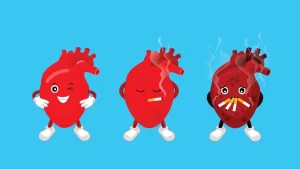
Image by: https://consumer.healthday.com/encyclopedia/heart-health-22/misc-stroke-related-heart-news-360/smoking-and-the-heart-645551.html
8. Pregnancy
Arrhythmias during pregnancy are relatively common due to hormonal changes and increased metabolic demands. These pregnancy-related arrhythmias are generally harmless. However, it is crucial for healthcare providers to evaluate them early to determine the need for treatment.
- Pregnancy-related arrhythmias are generally harmless but should be evaluated by healthcare providers.
- Early evaluation ensures appropriate treatment if needed.

Image by: https://www.corhealthcare.com/blog/the-link-between-pregnancy-complications-and-heart-disease
Treatment and Prevention
While some post-meal palpitations may resolve on their own without treatment, recurrent or bothersome palpitations should prompt consultation with a healthcare provider. Preventing palpitations may involve avoiding known triggers, such as caffeine, stress, and alcohol. Medications and other interventions may be recommended based on the underlying cause of the palpitations.
- Prevention may involve avoiding known triggers such as caffeine, stress, and alcohol.
- Medications and other interventions may be recommended based on the underlying cause.
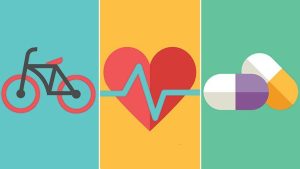
Image by: https://www.everydayhealth.com/heart-disease/treatment-prevention/
When to Contact a Doctor
If you experience occasional palpitations without other concerning symptoms, a medical examination may not be immediately necessary. However, if palpitations become frequent, worsen, or are associated with symptoms like chest pain, dizziness, confusion, or difficulty breathing, seeking prompt medical attention is essential. A doctor can conduct tests, such as an electrocardiogram (EKG), to evaluate your heart’s electrical activity and recommend appropriate treatment if needed.
- Seek prompt medical attention if palpitations become frequent, worsen, or are associated with symptoms like chest pain, dizziness, confusion, or difficulty breathing.
- A doctor can conduct tests, such as an electrocardiogram (EKG), to evaluate your heart’s electrical activity and recommend appropriate treatment if needed.

Image by: https://hamiltonchn.org/visiting-the-doctor-during-this-social-distancing-time/
Conclusion
Post-meal heart palpitations can be triggered by various factors, including dietary choices, medications, and lifestyle habits. While they are often benign, recurrent palpitations should not be ignored. It is essential to collaborate closely with a healthcare provider to determine the underlying cause and develop a personalized management plan. By understanding the triggers and seeking timely medical advice, you can effectively manage post-meal heart palpitations and prioritize your heart health.
Comparative Table: Common Causes of Post-Meal Heart Palpitations
| Trigger | Description | Impact on Palpitations |
|---|---|---|
| Alcohol | Excessive drinking, even moderately, may elevate the risk of atrial fibrillation. | Common trigger for palpitations. |
| Caffeine | Present in coffee, tea, sodas, and energy drinks, it can lead to arrhythmias. | Frequent cause of post-meal palpitations. |
| High Sodium Foods | Foods like chips and processed meats, high in salt, can increase arrhythmia risk. | Consumption may contribute to palpitations. |
| Overall Diet | Diets high in saturated fats or low in carbohydrates can affect heart rhythms. | Dietary habits influence the likelihood of palpitations. |
| Medications | Certain medications, including antidepressants and anti-inflammatories, may trigger palpitations. | Medication side effects can lead to arrhythmias. |
| Supplements | Herbal supplements like green tea or maté may adversely affect the heart. | Supplements can induce heart palpitations. |
| Smoking | Nicotine and tobacco components increase the risk of arrhythmias. | Smoking is a modifiable risk factor for palpitations. |
| Pregnancy | Hormonal changes during pregnancy can result in harmless arrhythmias. | Common during pregnancy but usually benign. |

















Leave a Comment
Your email address will not be published. Required fields are marked with *